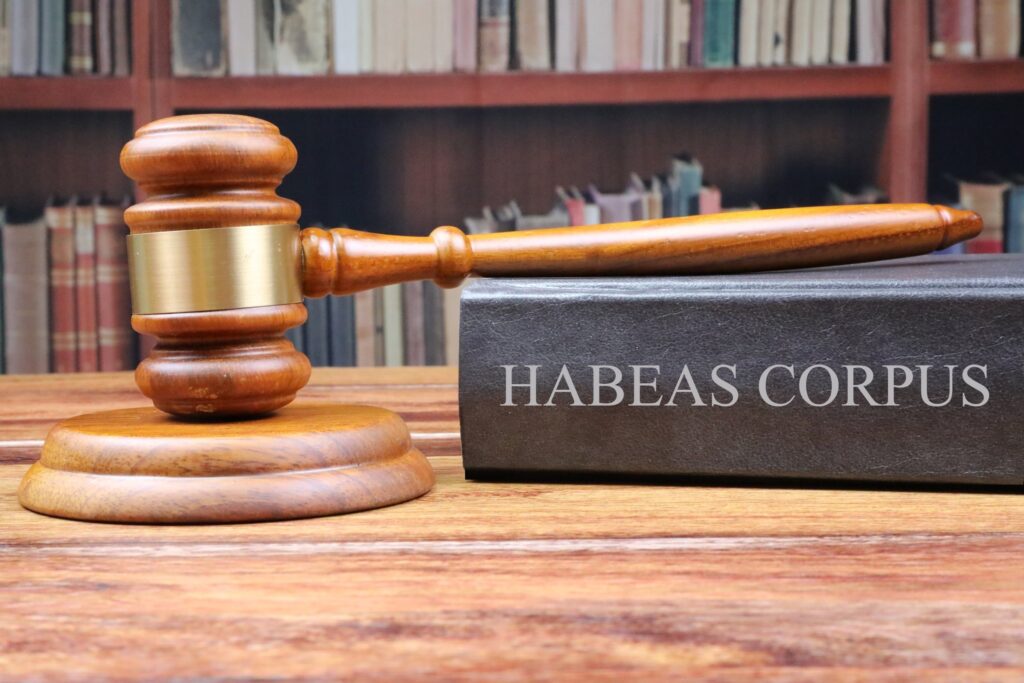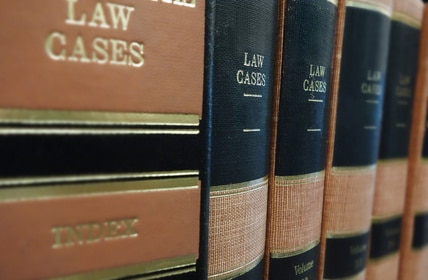Lawyer's Role in Filing a Habeas Corpus Petition Explained
Wiki Article
Recognizing the Duty of a Post-Conviction Legal Representative in Looking For Justice After a Criminal Sentence
In the complex landscape of post-conviction lawful procedures, the duty of a post-conviction lawyer is essential in navigating the course to justice after a criminal sentence - alaska federal habeas corpus. As the search of justice prolongs past the confines of first procedures, the duty of a post-conviction legal representative arises as a beacon of hope for those seeking to rectify oppressions and recover their legal rights within the legal system.Post-Conviction Lawyer's Investigatory Job
Post-conviction attorneys participate in thorough investigatory job to discover brand-new evidence, step-by-step mistakes, or misconduct that can potentially bring about reversing a conviction. This investigatory phase is crucial in the post-conviction procedure as it aims to recognize any type of overlooked information or lawful missteps that might have impacted the result of the initial test. Post-conviction attorneys dive into situation files, witness testaments, and lawful documentation with a fine-tooth comb, looking for any discrepancies or irregularities that might be grounds for charm.
Through detailed examination, post-conviction attorneys intend to clarify possible oppressions that might have occurred throughout the initial trial. They may perform interviews, speak with experts, and evaluation forensic proof to build a compelling situation for their customers. By scrutinizing every element of the lawful process, post-conviction attorneys work tirelessly to discover any kind of factors that may have affected the judgment. Ultimately, their investigatory job plays a crucial function in the pursuit of justice and the potential turnaround of wrongful convictions.
Crafting Appeals and Petitions
In the search of justice after a sentence, competent legal representatives diligently craft allures and applications to existing engaging arguments for the reconsideration of legal decisions. Crafting appeals and petitions calls for a deep understanding of the lawful system, focus to information, and calculated reasoning. Post-conviction attorneys examine test records, recognize possible mistakes or infractions of legal rights, and establish legal disagreements to test the conviction or sentence.When crafting an appeal, lawyers focus on highlighting legal mistakes that might have affected the result of the situation. They investigate situation law, statutes, and lawful precedents to support their debates. Applications, on the various other hand, may involve offering brand-new evidence that was not readily available throughout the trial or demonstrating adjustments in the legislation that necessitate a testimonial of the conviction.
Moreover, post-conviction lawyers have to comply with strict step-by-step guidelines and deadlines when submitting appeals and applications. They need to present their debates clearly and persuasively to encourage the court to approve relief to their customers. Through careful crafting of allures and requests, post-conviction lawyers strive to safeguard justice for individuals that have actually been wrongfully convicted or unjustly sentenced.

Pursuing Post-Conviction Relief
Post-conviction alleviation encompasses a range of lawful mechanisms designed to test the legitimacy of a sentence or sentence. Post-conviction attorneys play a critical duty in navigating these intricate procedures, ensuring that all lawful alternatives are explored to remedy injustices that might have occurred throughout the trial or sentencing stage.One common type of post-conviction relief is filing an application for post-conviction alleviation, typically based on claims of ineffective support of guidance, prosecutorial misbehavior, recently found evidence, or constitutional violations. Experienced post-conviction lawyers possess the skills and expertise required to determine practical legal claims, conduct investigations, and existing compelling disagreements to secure relief for their clients.
Making Use Of Forensic Proof
When testing a conviction or sentence, the tactical usage of forensic evidence can be an effective device in post-conviction lawful procedures. Forensic evidence encompasses a variety of clinical methods utilized to examine criminal offenses and establish realities in court. Post-conviction attorneys can utilize forensic proof to test the validity of sentences by providing new scientific searchings for that were not offered during the initial test.
Participating In Sentence Alterations
Post-conviction legal representatives might check out the opportunity of sentence modifications as a lawful avenue to resolve out of proportion or unjustified sentences passed Resources on in criminal instances. Sentence adjustments include seeking changes to the regards to an accused's sentence after a conviction has taken place. These alterations can consist of minimizing the length of a sentence, altering the kind of penalty enforced, or checking out alternative sentencing options.Post-conviction attorneys can pursue sentence modifications via different legal devices, such as submitting motions for sentence decrease, appealing for caring release, or working out appeal bargains for decreased sentences. They should meticulously examine the conditions of the instance, examine the legal grounds for seeking an adjustment, and existing engaging debates to the court supporting the requirement for a revised sentence.
Involving in sentence alterations needs a thorough understanding of criminal law, punishing guidelines, and the certain procedures associated with seeking post-conviction relief. Post-conviction attorneys play a critical role in advocating for fair and just outcomes by difficult sentences that are unduly harsh or do not line up with the concepts of justice.
Conclusion
In verdict, the role of a post-conviction legal representative is important in looking for justice after a criminal conviction. With investigatory work, crafting charms and applications, pursuing post-conviction relief, making use of forensic evidence, and taking part in sentence adjustments, these lawful professionals play a crucial duty in advocating for their clients and making certain that their rights are maintained within the criminal justice system. Their devotion and know-how are essential in navigating the intricacies of post-conviction procedures and attaining a reasonable outcome for individuals dealing with criminal sentences.Report this wiki page